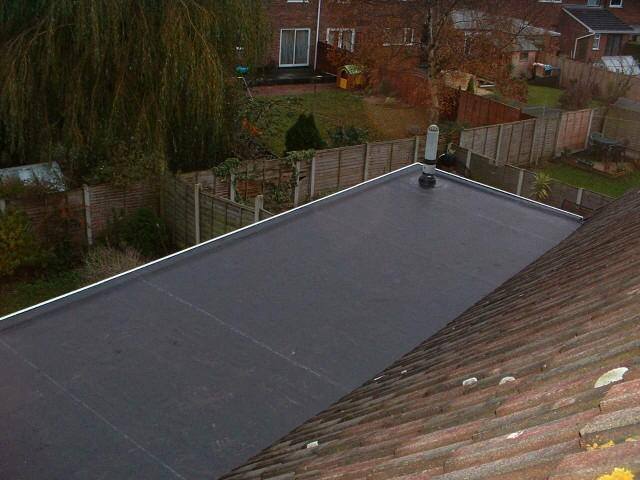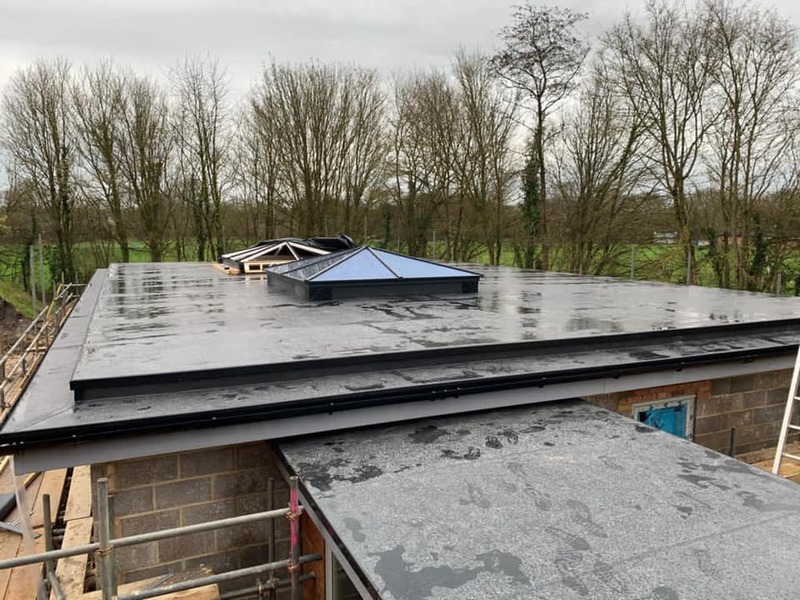Flat roofs have been around for centuries, and they remain a popular option when it comes to roofing. But are flat roofs more prone to leaks than other kinds of roofs?
This is an important question that needs to be answered in order for homeowners to make the best decision possible. As a flat roofing expert, I’m here to provide you with insight into this topic so you can learn whether or not installing a flat roof could lead to problems down the road.
If you’re considering investing in a new roof, then exploring the pros and cons of different types of roofs is essential. And when it comes to leak prevention, understanding how well a flat roof will stand up against water damage is key information.
So let’s take some time now to consider if there really is a higher chance of leaking with these types of roofs compared to others – and what steps can be taken to ensure your home remains free from leaks no matter what kind of roof you choose!
Overview Of Flat Roofs
Flat roofs are like an ice skating rink in the middle of a hot summer day; they provide scarce comfort and have little protection against nature’s elements.
As such, they can be problematic and pose some risks when it comes to leakage.
Which roof style is most prone to leakage?
Is it a bad idea to have a flat roof?
How do you keep a flat roof from leaking?
Understanding these questions requires diving deep into pros and cons of having this type of roofing system.

Pros And Cons Of Flat Roofs
Flat roofs are great for their low cost and easy installation, but they can be prone to leaking and have a limited lifespan.
I’d recommend having regular maintenance and inspections to keep your flat roof in good condition and prevent leaks.
However, if your roof is already leaking, you should consider replacing it before it causes more damage.
All in all, flat roofs can be a great option, as long as you’re aware of their potential issues.
Pros Of Flat Roofs: Low Cost
Flat roofs are a great way to save money on installation and maintenance costs. There’s no need for steep angles or expensive materials when you choose a flat roof, so it’s much more cost-effective than other options out there.
But does the lower price tag mean that these roofs are more susceptible to leaks? Not necessarily! Flat roofs can be well-insulated and sealed properly against water damage – in fact, they’re just as capable of staying dry as any other kind of roofing system.
The key is making sure your contractor uses quality materials and takes all the necessary steps during construction. With proper care, your flat roof will keep your home safe from moisture intrusion regardless of whether you live in an area with heavy rain or even snowfall.
So don’t let worries about leaks stop you from taking advantage of this affordable option; chances are, if done right, your flat roof won’t let you down!
Easy Installation
Flat roofs are incredibly easy to install, and with the right contractor on your side, you can have a roof that’s ready for years of reliable service in no time at all.
The materials used for flat roofs don’t require as much cutting or shaping compared to other types of roofing systems, so it won’t take long to complete the job.
Plus, there aren’t any complicated angles or slopes to consider – unlike traditional pitched roofs – which makes installation even simpler.
It’s a great way to get maximum protection from the elements without having to spend too much time and energy putting it together!
What’s more, these simple-to-install roofs still provide an impressive level of insulation against heat loss.
So not only do you save money by avoiding complex installations; you also get better performance out of your roof year after year.
That adds up to real freedom: peace of mind knowing your home is well protected while keeping costs low – something every homeowner deserves.
Factors Contributing To Leakage In Flat Roofs
Flat roofs are becoming increasingly popular due to their convenience and affordability. While they can provide a modern aesthetic, there is one major downside: the potential for leaks. Leaks in flat roofs require immediate attention as they can cause permanent damage if left untreated.
Here are three factors that contribute to leakage in flat roofs:
- Poor maintenance or installation of the waterproofing membrane
- Issues with slope or drainage
- Ponding water from improper drainage
It’s important to note that any issue with these components can lead to significant problems down the line. For instance, pooling water on your roof could eventually seep through weak spots in your membrane and cause serious structural damage.
To avoid this costly repair, you must take preventative action and maintain your flat roof properly. In addition, make sure it has been installed correctly by an experienced professional. It’s also essential to inspect it regularly for any signs of distress such as tears, punctures or cracking.
Taking these steps now will help ensure you don’t have to face bigger issues later on. By proactively addressing potential issues, you can protect yourself against future headaches caused by leaking flat roofs!
Prevention And Maintenance Of Flat Roof Leaks
Prevention and maintenance of flat roof leaks is critical in order to maintain the integrity of your home. As they say, an ounce of prevention is worth a pound of cure – so taking proactive steps to prevent problems with your flat roof before they start can save you time, money, and headaches down the road.
Flat roofs require regular inspections and maintenance to ensure that any potential issues are identified early. This includes checking for holes or cracks in the membrane as well as ensuring proper drainage to avoid pooling water on the surface. Additionally, it’s important to make sure that no tree branches or other debris has fallen onto the roof since these can create weak spots where a leak may form.
It’s also recommended that gutters be cleared out regularly to keep them from becoming clogged and damaged over time. Finally, scheduling yearly professional inspections by a qualified contractor should help identify any potential leaks before they become a major problem.
Properly maintaining your flat roof will not only extend its lifespan but also reduce the risk of costly surprises due to structural damage caused by undiagnosed leaks! Taking preventive measures now will pay off in the long run while keeping your family safe and secure beneath their reliable shelter.
Frequently Asked Questions
How Much Does A Flat Roof Cost Compared To Other Roof Types?
Flat roofs can be surprisingly cost-effective compared to other roof types, as they are generally cheaper in terms of initial investment.
They also require less maintenance than pitched roofs, and have a longer life span too.
However, it’s important to note that flat roofs do still need regular inspections and repairs to prevent leaks from occurring – something you’ll want to factor into the overall cost of the roof installation!
What Type Of Materials Are Used In A Flat Roof?
Flat roofs are typically constructed out of a variety materials depending on the location and climate.
Common materials used in flat roof construction include rubber membrane, modified bitumen, built-up tar & gravel, single ply membranes such as PVC or TPO and metal roofing systems like aluminum or steel.
Rubber membrane is an easy to install option that’s resistant to water damage when installed correctly – it can also be painted for aesthetic purposes.
Modified bitumen offers excellent performance in cold climates but may need additional coating during hot months.
Built-up tar and gravel is one of the oldest methods of waterproofing a flat roof but should only be done by experienced professionals due to its complexity and labor intensive application process.
Single-ply membranes such as PVC or TPO offer superior protection against UV rays while being lightweight and simple to install compared with other options.
Metal roofing systems are relatively inexpensive yet durable, though they require regular maintenance in order to maintain their performance over time.
How Long Do Flat Roofs Typically Last?
Flat roofs can last decades if maintained properly, but it is like sailing a ship in rough waters.
If you don’t take the necessary precautions to protect your flat roof from harsh elements and repair minor damages quickly, you will be dealing with major repairs or complete replacement sooner than expected.
When built correctly using quality materials such as rubber membrane, felt paper, modified bitumen, and TPO sheeting, a flat roof can easily last 20-25 years.
Regular maintenance checks are essential for ensuring that your roof sails through stormy weather without taking on water.
Are Flat Roofs Suitable For All Climates?
Flat roofs are an incredibly versatile roofing option, but they may not be suitable for all climates. Depending on the location and seasonality of your area, you might consider investing in a more weather-resistant material such as tile or metal roofing.
Flat roofs can withstand most climates without issue, however they’re particularly vulnerable to extreme heat or cold temperatures and inclement weather like high winds and heavy rain.
If you live in an area with a mild climate, flat roofs can provide reliable protection against moisture infiltration while also providing insulation benefits.

Are There Any Special Considerations For Flat Roof Installation?
When installing a flat roof, there are some special considerations one must take into account. For example, the material used to cover the roof needs to be chosen carefully as it has an effect on how much heat is retained and lost from the building.
Additionally, its important to make sure that the installation process is done properly in order to prevent leaks down the line; which can cause significant damage if left unchecked.
It’s worth investing time and money upfront by consulting with a professional before attempting any DIY projects – they’ll have years of experience and knowledge that will help ensure your flat roof is installed correctly!
Conclusion
In conclusion, flat roofs are a great option for anyone looking to replace or install a new roof. Though they may be more prone to leaks than other types of roofs due to their design, proper installation and maintenance can go a long way in preventing any issues from arising.
As an expert in the field of flat roofing, I’d like to encourage everyone considering this type of roof to weigh all available options carefully before making their decision – after all, your home is one of your most valuable investments!
With that being said, if you take good care of it, your flat roof will last for years and provide protection against Mother Nature’s elements with its reliable style.
Call us to get a price quote. Contact us today on 0115 736 5995 to receive a free quote or visit our website.
